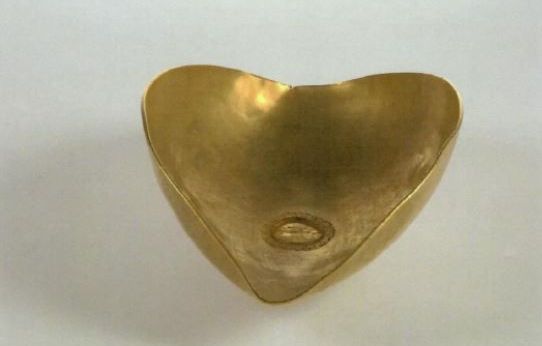The prosecution requested a suspended prison sentence and heavy fines on Tuesday at the “Treasure of Lava” trial, castigating “looters” who had destroyed a priceless set of objects from Roman antiquity which “could have been the pride” of Corsica. Against Félix Biancamaria, 67, arrested in 2010 in possession of a curved gold dish 25 cm in diameter that he brought back from Brussels, the prosecutor requested a two-year suspended prison sentence and a 150,000 euro fine, before the Marseille criminal court.
Against his friend and alleged accomplice, Jean-Michel Richaud, 68, the magistrate demanded a 10-month suspended prison sentence and a fine of 15,000 euros. The prosecutor also specified that customs were jointly demanding a fine of 800,000 euros from the two men. Both are being prosecuted for “concealment and possession of a maritime cultural property presenting the character of national treasure”, in this case this gold dish, estimated to be worth several million euros, and its “smuggling importation”.
The sea urchin of the century
It was while fishing for sea urchins in 1985 in the Gulf of Lava, 17 kilometers north of Ajaccio, with his brother Ange and a friend, that Félix Biancamaria discovered the first gold pieces of this 3rd century treasure, in the effigies of the Roman emperors Gallienus, Claudius II, Quintille and Aurelian. He was already sentenced in 1995 in this case, with his brother, to 18 months suspended imprisonment and a fine, for “hijacking a maritime wreck”.
Regretting this meeting “which should never have happened between History and the looters,” prosecutor Michel Sastre castigated the defendants for having “destroyed an entire section of historical knowledge” and “squandered property that could have made the pride of the island. He brushed aside the defense’s argument that the treasure actually has an earthly origin, in which case the discoverer is legally entitled to 50% of its value. Whereas if it is damaged at sea, from a ship, it belongs entirely to the State.
The prosecutor recalled that Félix Biancamaria had notably signed a book recounting the underwater discovery of this dish, denouncing a defendant “who sometimes says white and sometimes says black”. And for the magistrate, the notion of maritime wreck “is fully applicable to the dish”. After the defense’s pleadings, the judgment should be reserved.

